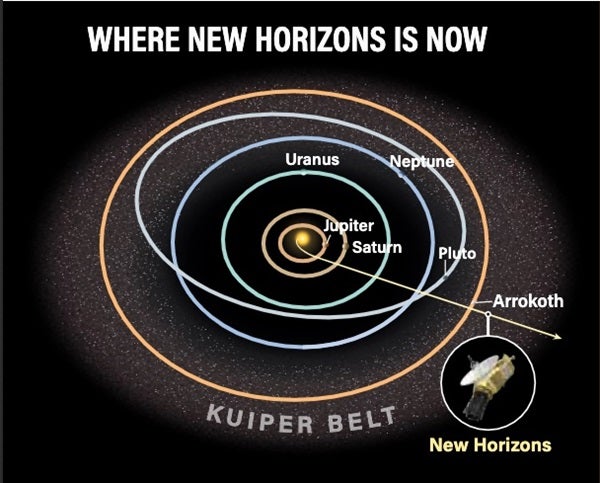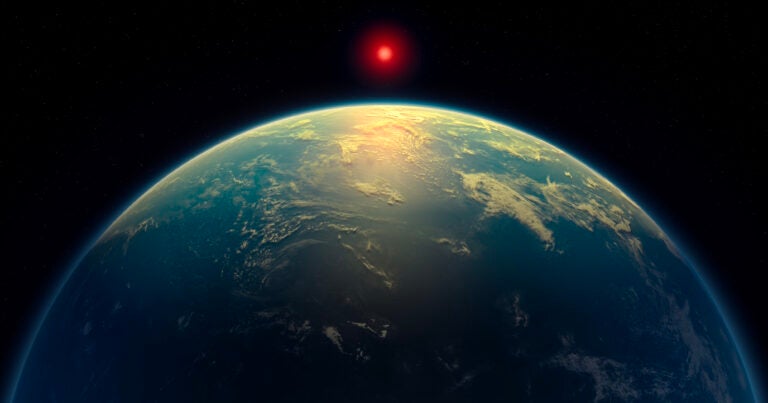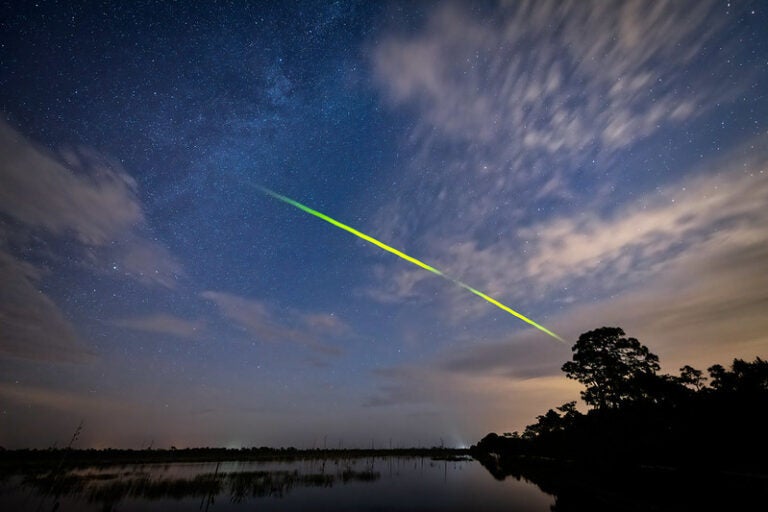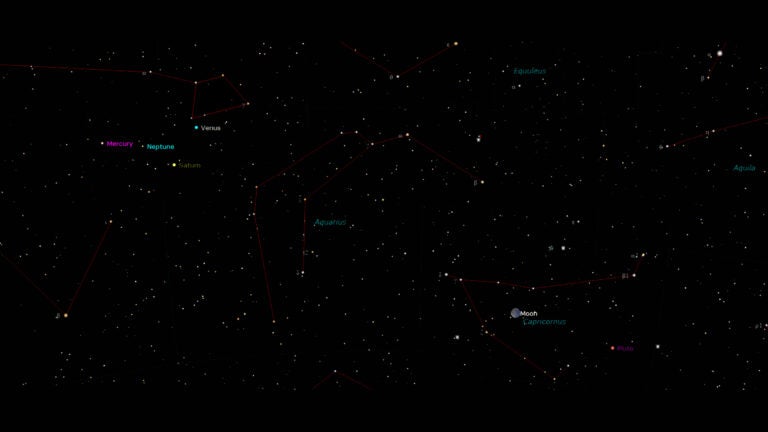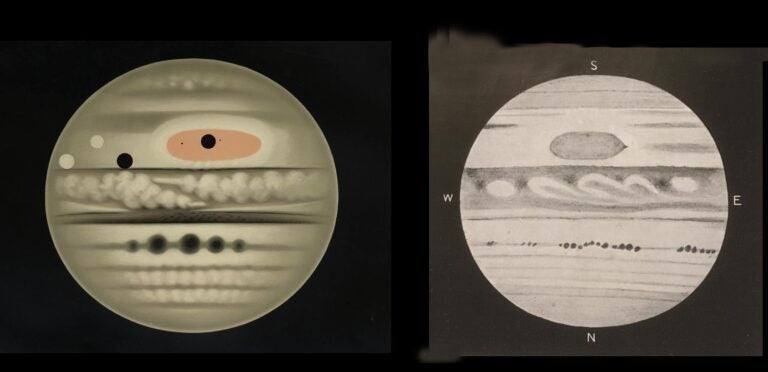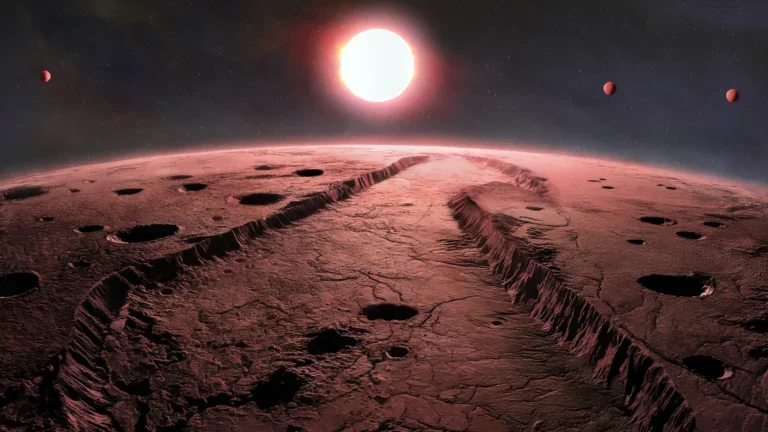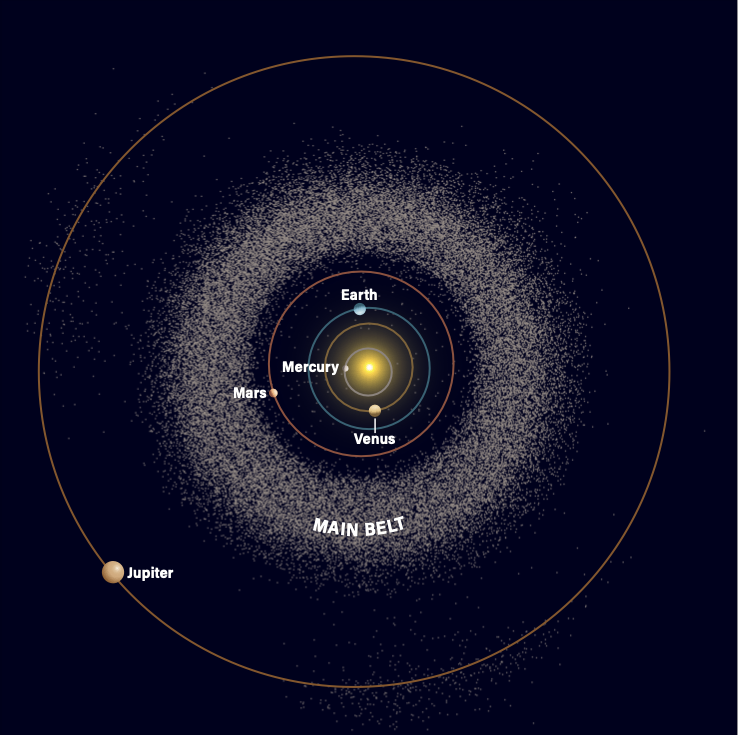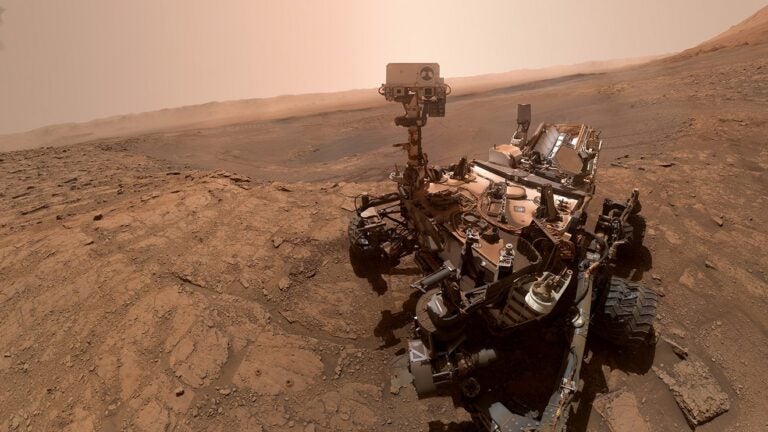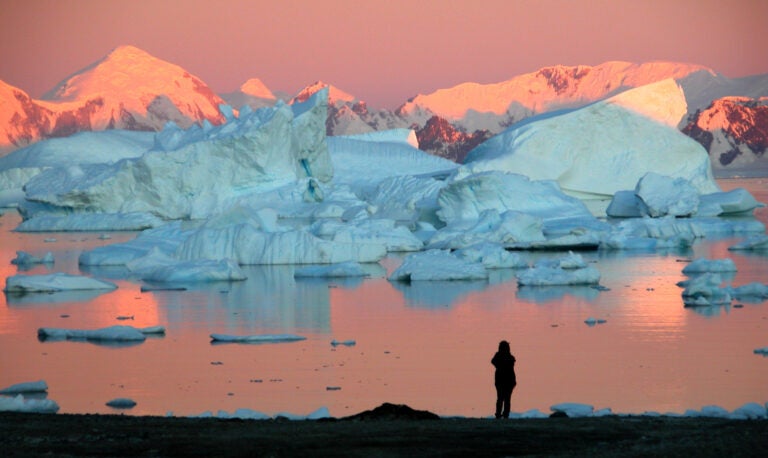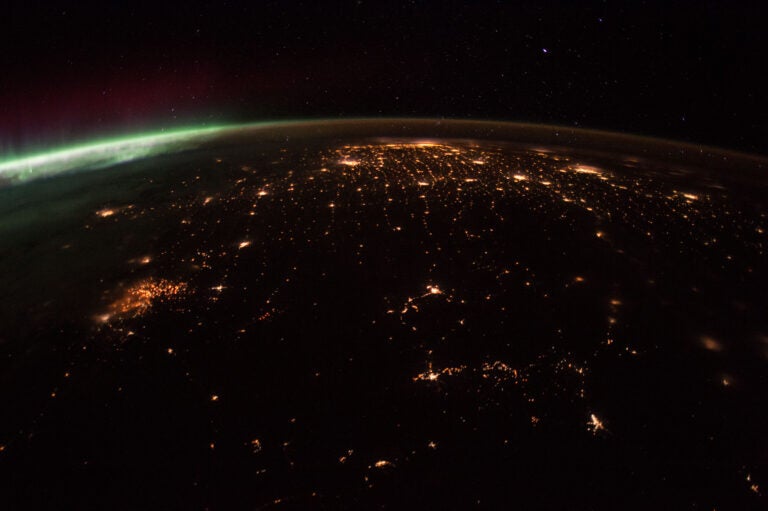Q: Since New Horizons’ flyby of Arrokoth in January 2019, is the spacecraft zooming toward a new target? Is New Horizons able to search for Planet Nine?
A: New Horizons is healthy and routinely studying the Kuiper Belt environment and Kuiper Belt objects (KBOs) it passes in the distance. For the next year or so, the New Horizons team is using the largest telescopes on Earth — such as the Subaru telescope in Hawaii — to find more KBO targets. From there, we can determine if New Horizons has the fuel to perform a flyby.
We should know the results of our first search by fall or early winter 2020, and we will observe again using ground-based telescopes between April and September 2021. If either search succeeds in finding a potential target, we would seek NASA’s permission to burn our engines to conduct another flyby.
I personally consider Pluto to be the solar system’s ninth planet to honor its discoverer Clyde Tombaugh and his contributions to planetary science. So, I call Pluto planet nine. With regard to the hypothetical object Konstantin Batygin and Michael E. Brown believe causes the perturbations of KBOs’ orbits, the jury is still out on whether it is real. Scientists have looked for such a planet for many years and have not been able to find it.
While it would be fun to look for new planets with New Horizons, large telescopes on Earth do a much better job than the smaller telescopes New Horizons is equipped with. New Horizons also has no internal reaction wheels and relies on its thrusters to orient itself, so slewing the spacecraft around to search for planets would waste precious fuel we could use for another flyby farther out in the Kuiper Belt.

